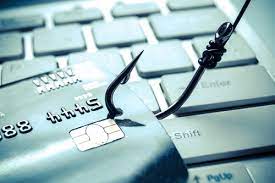Fraudulent activities can encompass a wide range of deceitful practices, but the severity of the consequences varies depending on the nature and scale of the fraud committed. However, Is fraud a felony? In this brief exploration, we’ll uncover the legal implications surrounding fraud and whether it constitutes a felony offense.
Yes, fraud is typically considered a felony offense. Felonies are serious crimes punishable by imprisonment for more than one year. Fraud involves intentionally deceiving someone for personal gain, often through false representation or omission of facts. The severity of the punishment for fraud can vary depending on factors such as the amount of money involved, the method used, and the impact on victims.
In many jurisdictions, fraudulent activities such as identity theft, embezzlement, and securities fraud are classified as felonies due to their significant potential for harm and disruption.
Importance of understanding fraud’s legal status

Fraud, defined as deceptive or dishonest conduct intended to result in financial or personal gain, carries significant legal implications. Understanding the legal status of fraud is crucial for several reasons:
- Legal Compliance: Knowing what constitutes fraud and the legal consequences associated with it helps individuals and organizations ensure they operate within the bounds of the law. Compliance with legal standards is essential for maintaining trust and avoiding penalties.
- Risk Management: Awareness of fraud laws enables individuals and businesses to identify potential fraudulent activities and take measures to mitigate the associated risks. This can include implementing internal controls, fraud detection mechanisms, and establishing clear policies and procedures.
- Protection of Rights: Understanding fraud laws empowers individuals to protect their rights in case they become victims of fraudulent activities. It provides them with knowledge of legal remedies available to seek justice and recover damages incurred due to fraud.
- Prevention and Deterrence: Clear understanding of fraud laws acts as a deterrent against engaging in fraudulent behavior. Individuals and organizations are less likely to commit fraud if they are aware of the severe legal consequences they may face.
- Promotion of Ethical Conduct: Knowledge of fraud laws promotes ethical conduct by emphasizing the importance of honesty, integrity, and accountability in business and personal dealings. It fosters a culture of transparency and trust within organizations and society at large.
- Effective Investigation and Prosecution: Law enforcement agencies and legal professionals require a deep understanding of fraud laws to effectively investigate allegations of fraud and prosecute offenders. This includes gathering evidence, presenting cases in court, and ensuring that justice is served.
- Global Business Practices: In an increasingly interconnected world, understanding fraud laws becomes even more critical for businesses operating across different jurisdictions. Each country may have its own legal framework governing fraud, and compliance with these laws is essential for international business transactions.
Understanding the legal status of fraud is essential for maintaining legal compliance, managing risks, protecting rights, preventing fraud, promoting ethical conduct, enabling effective investigation and prosecution, and facilitating global business practices.
Is fraud a felony?
In many jurisdictions, fraud is indeed considered a felony. However, it’s important to note that the classification of fraud as a felony can vary depending on the specific circumstances of the case, the amount of money involved, and the laws of the jurisdiction where the fraud occurred.
Felony charges typically apply to more serious cases of fraud, such as those involving large sums of money, multiple victims, or acts of intentional deception with significant consequences. In contrast, less severe cases of fraud may be classified as misdemeanors.
Felony convictions for fraud can result in severe penalties, including substantial fines and lengthy prison sentences. Additionally, individuals convicted of felony fraud may face other consequences, such as restitution payments to victims and restrictions on future employment opportunities.
It’s essential to consult legal experts or refer to the specific laws in your jurisdiction to understand how fraud is classified and prosecuted, as legal definitions and penalties can vary widely from one place to another.
Factors influencing the classification of fraud as a felony
The classification of fraud as a felony varies depending on the jurisdiction and the specific circumstances of the case. However, several factors commonly influence whether fraud is classified as a felony:
- Value of the Fraud: In many jurisdictions, the value of the fraud plays a significant role in determining the severity of the offense. Fraud involving a large sum of money is more likely to be classified as a felony compared to smaller-scale fraud.
- Intent: The perpetrator’s intent is crucial in determining the severity of the offense. If the fraud was committed knowingly and intentionally, it is more likely to be classified as a felony. Intent can be established through evidence such as forged documents, false statements, or deliberate actions to deceive.
- Victim Impact: The impact of the fraud on the victim or victims may also influence its classification. If the fraud caused significant financial harm, emotional distress, or other negative consequences to individuals or businesses, it may be treated more severely under the law.
- Repeat Offenses: Perpetrators with a history of committing fraud or other similar offenses may face harsher penalties, including felony charges. Repeat offenders are often viewed as more culpable and may be subject to enhanced sentencing.
- Aggravating Circumstances: Certain aggravating factors, such as using sophisticated methods to perpetrate the fraud, targeting vulnerable individuals or groups, or being part of an organized criminal enterprise, can lead to the classification of fraud as a felony.
- Type of Fraud: The type of fraud involved can also influence its classification. Some types of fraud, such as identity theft, securities fraud, healthcare fraud, or tax fraud, are considered more serious and may be automatically classified as felonies under relevant statutes.
- Jurisdictional Laws: The laws and statutes governing fraud vary from one jurisdiction to another. Some jurisdictions have specific laws that dictate the classification of certain types of fraud as felonies, while others may provide prosecutors with discretion in charging decisions.
- Prosecutorial Discretion: Prosecutors have discretion in determining the charges to be filed based on the evidence available and the circumstances of the case. They may consider factors such as the strength of the case, the defendant’s cooperation, and the public interest in pursuing felony charges.
The classification of fraud as a felony is influenced by a combination of these factors, and each case is evaluated based on its unique circumstances within the framework of relevant laws and legal precedents.
Types of Fraud
Fraud can manifest in various forms, spanning from individual scams to sophisticated corporate schemes. Here are some common types of fraud:
- Identity Theft: This involves stealing someone’s personal information, such as social security numbers or credit card details, to impersonate them for financial gain. Identity thieves may open fraudulent accounts, make unauthorized purchases, or commit other crimes using the victim’s identity.
- Payment Card Fraud: Payment card fraud encompasses unauthorized use of credit or debit card information to make purchases or withdraw funds. It can occur through stolen cards, card skimming devices, or online hacking of card data.
- Insurance Fraud: Individuals or organizations may engage in insurance fraud by making false claims or exaggerating damages to obtain insurance payouts illegally. This can include faking accidents, injuries, or property damage.
- Investment Fraud: Investment fraud involves deceptive practices in financial markets, where individuals or entities misrepresent investments to attract investors and unlawfully obtain their funds. Ponzi schemes, pump and dump schemes, and insider trading are common examples.
- Corporate Fraud: Corporate fraud refers to illegal activities committed by corporations or their executives for financial gain or to deceive stakeholders. This can include financial statement fraud, embezzlement, bribery, and insider trading.
- Healthcare Fraud: Healthcare fraud involves submitting false claims to healthcare providers or insurance companies for medical services or products that were not provided, unnecessary, or overcharged. This can include billing for services not rendered or prescribing unnecessary treatments.
- Internet Fraud: With the rise of online transactions, internet fraud has become prevalent. This includes various scams such as phishing, where perpetrators trick individuals into revealing personal information, as well as online auction fraud, fake websites, and non-delivery scams.
- Mortgage Fraud: Mortgage fraud occurs when individuals provide false information or omit crucial details on mortgage applications to obtain loans they are not eligible for. This can involve inflating income, concealing debt, or misrepresenting property values.
- Charity Fraud: Perpetrators of charity fraud misrepresent charitable organizations or create fake charities to solicit donations for personal gain. They may use emotional appeals or mislead donors about the use of funds, diverting money intended for charitable purposes.
- Government Fraud: Government fraud involves defrauding government agencies or programs, such as tax evasion, procurement fraud, contract bid rigging, or abuse of government benefits.
Understanding these various types of fraud is essential for individuals and organizations to recognize and prevent fraudulent activities, thereby safeguarding themselves and their assets from financial losses and legal consequences.
Common forms of fraudulent activities

Fraudulent activities can take various forms, each aimed at deceiving individuals or organizations for financial gain. Some common forms of fraudulent activities include:
- Embezzlement: This involves the misappropriation or theft of funds or assets by someone entrusted with their management, such as employees, managers, or executives. Embezzlers may manipulate financial records or divert company funds for personal use.
- Forgery: Forgery occurs when someone falsifies documents, signatures, or other forms of identification to deceive others. This can include forging checks, contracts, wills, or financial statements to obtain unauthorized access to funds or property.
- False Billing: False billing schemes involve submitting invoices or bills for goods or services that were not provided or were overcharged. This can occur in various contexts, such as healthcare billing, vendor invoices, or expense reimbursement schemes.
- Kickbacks: Kickbacks occur when someone receives illegal payments or benefits in exchange for providing favorable treatment or business opportunities to another party. This can include bribes, commissions, or other incentives offered to employees, contractors, or vendors.
- Check Fraud: Check fraud encompasses various schemes involving fraudulent checks, such as check kiting, check counterfeiting, or check washing (altering checks to change the payee or amount). Perpetrators may use stolen or counterfeit checks to withdraw funds from accounts illegally.
- Identity Theft: Identity theft involves stealing someone’s personal information, such as social security numbers, credit card details, or passwords, to impersonate them or commit fraud. Perpetrators may open fraudulent accounts, make unauthorized purchases, or apply for loans using the victim’s identity.
- Phishing and Social Engineering: Phishing and social engineering attacks involve tricking individuals into revealing sensitive information or performing actions that benefit the attacker. This can include fraudulent emails, phone calls, or websites designed to steal personal or financial information.
- Ponzi Schemes: Ponzi schemes involve promising high returns to investors by using funds from new investors to pay returns to earlier investors, rather than generating legitimate profits. Eventually, the scheme collapses when it becomes unsustainable, leaving investors with significant losses.
- Credit Card Fraud: Credit card fraud encompasses various schemes involving the unauthorized use of credit or debit card information to make purchases or withdraw funds. This can include stolen cards, card skimming devices, or online hacking of card data.
- Insurance Fraud: Insurance fraud involves submitting false claims or providing misleading information to insurance companies for financial gain. This can include exaggerating damages, staging accidents, or falsifying medical records to obtain insurance payouts illegally.
These are just a few examples of the many forms of fraudulent activities that individuals and organizations may encounter. Understanding these common schemes and implementing effective prevention and detection measures are essential for safeguarding against financial losses and reputational damage associated with fraud.
Prevention and Detection
Prevention and detection are critical aspects of combating fraudulent activities. Here’s a breakdown of strategies for both:
Prevention:
- Establish Strong Internal Controls: Implement robust internal controls within your organization, including segregation of duties, regular audits, and oversight mechanisms to prevent opportunities for fraud.
- Employee Training and Awareness: Educate employees about the risks and consequences of fraud, as well as the company’s policies and procedures for reporting suspicious activities. Encourage a culture of honesty, integrity, and ethical behavior.
- Use Technology and Data Analytics: Utilize technology and data analytics to identify patterns and anomalies that may indicate fraudulent activities. Invest in fraud detection software and tools to monitor financial transactions and detect irregularities.
- Strengthen Cybersecurity Measures: Protect against cyber fraud by implementing strong cybersecurity measures, such as firewalls, encryption, and multi-factor authentication. Train employees to recognize phishing attempts and other common tactics used by cybercriminals.
- Vendor and Partner Due Diligence: Conduct thorough due diligence on vendors, suppliers, and other business partners to ensure they are reputable and trustworthy. Verify their credentials, financial stability, and compliance with legal and regulatory requirements before entering into any agreements.
- Implement Whistleblower Hotline: Establish a confidential hotline or reporting mechanism for employees to report suspected fraud or unethical behavior. Ensure there are no repercussions for whistleblowers and that all reports are investigated promptly and thoroughly.
Detection:
- Regular Monitoring and Review: Continuously monitor and review financial statements, bank reconciliations, and other accounting records for discrepancies or unusual transactions that may indicate fraud. Implement procedures for independent verification and oversight of financial reporting processes.
- Data Analytics and Forensic Analysis: Use data analytics and forensic analysis techniques to identify potential red flags or irregularities in financial data. Look for patterns, trends, or anomalies that may indicate fraudulent activities.
- Conduct Regular Audits: Conduct regular audits of financial records, internal controls, and business processes to identify weaknesses or vulnerabilities that may be exploited for fraud. Ensure audits are thorough and performed by independent third parties.
- Monitor Employee Behavior: Keep an eye on employee behavior and performance, especially those in positions of trust or with access to sensitive information. Look for signs of unusual behavior, lifestyle changes, or unexplained wealth that may indicate fraudulent activities.
- Stay Informed and Educated: Stay updated on the latest trends and tactics used by fraudsters by participating in training programs, attending seminars, and networking with other professionals in the field. Share information and best practices with colleagues and industry peers to improve collective awareness and vigilance.
By implementing a combination of prevention and detection strategies, organizations can reduce the risk of falling victim to fraudulent activities and protect their assets, reputation, and stakeholders’ trust. It’s crucial to remain proactive, vigilant, and adaptable in the face of evolving fraud threats.
Consequences of felony convictions

Felony convictions carry significant consequences that can have long-lasting impacts on various aspects of an individual’s life. These consequences may include:
- Imprisonment: Felony convictions often result in substantial prison sentences, ranging from a few years to life imprisonment, depending on the severity of the offense and other factors such as prior criminal history.
- Loss of Civil Rights: Felons may lose certain civil rights, such as the right to vote, hold public office, serve on a jury, or possess firearms. These restrictions can vary depending on state laws and may be temporary or permanent.
- Employment Barriers: A felony conviction can make it challenging to secure employment, as many employers conduct background checks and may be hesitant to hire individuals with a criminal record, particularly for positions of trust or responsibility.
- Housing Restrictions: Felons may encounter difficulties in finding housing, as landlords often conduct background checks on prospective tenants and may be reluctant to rent to individuals with a criminal history.
- Financial Consequences: Felony convictions can have significant financial repercussions, including fines, court costs, and restitution payments to victims. Additionally, individuals with felony convictions may face challenges in obtaining loans, credit, or financial aid for education.
- Professional Licensing: Certain professions require state licensure, and felony convictions may disqualify individuals from obtaining or maintaining professional licenses in fields such as law, medicine, nursing, teaching, real estate, and others.
- Immigration Consequences: Non-citizens convicted of felonies may face deportation, exclusion from re-entry into the United States, or other immigration consequences, including loss of legal status or eligibility for future immigration benefits.
- Social Stigma and Isolation: Felony convictions can lead to social stigma, discrimination, and ostracism from friends, family, and community members, which can contribute to feelings of isolation and marginalization.
- Loss of Parental Rights: In some cases, felony convictions can lead to the termination of parental rights or restrictions on custody and visitation, particularly if the offense involves child abuse, neglect, or endangerment.
- Loss of Public Benefits: Felony convictions may result in the loss of certain public benefits, such as welfare, housing assistance, food stamps, and other forms of government assistance, depending on state and federal laws.
Felony convictions can have wide-ranging and profound consequences that affect various aspects of an individual’s personal, professional, and social life, making it crucial for individuals facing criminal charges to seek legal counsel and understand their rights and options.
Conclusion
The classification of fraud as a felony carries significant implications for both the perpetrator and society at large. Factors such as the value of the fraud, intent, victim impact, and jurisdictional laws play pivotal roles in determining the severity of consequences associated with fraud convictions.
Whether it’s the loss of civil rights, barriers to employment and housing, or the social stigma and financial repercussions, the ramifications of a felony conviction for fraud can be far-reaching and enduring. Thus, understanding the gravity of the question Is fraud a felony? underscores the importance of preventing, detecting, and prosecuting fraudulent activities effectively within the legal framework.
